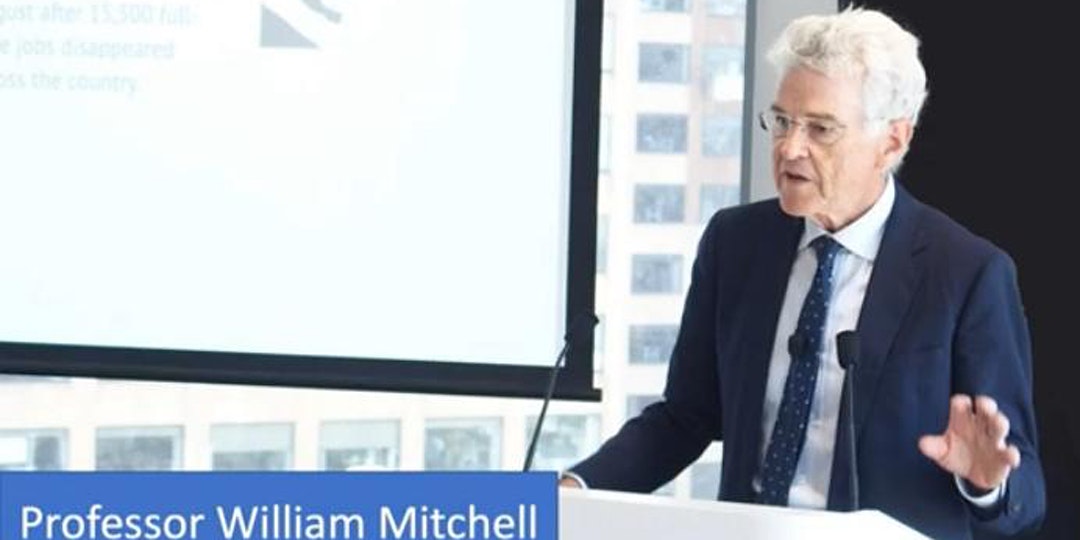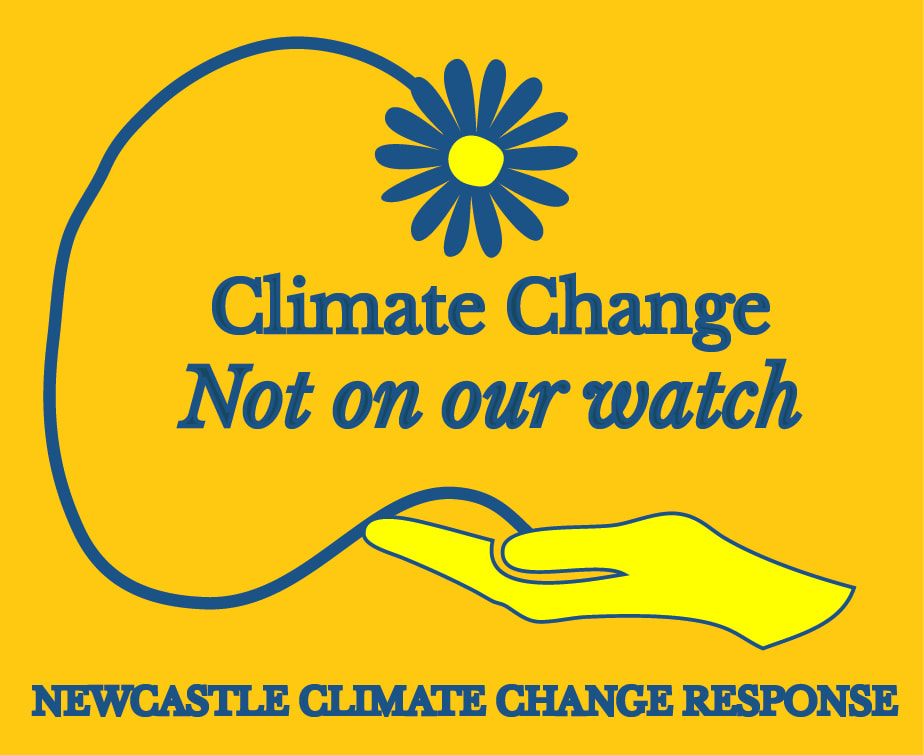My concerns about the National Covid-19 Coordination Commission |
| 26 May 2020 Senate Select Committee on COVID-19 My concerns about the National Covid-19 Coordination Commission Dear Senators, The effectiveness of the National Covid-19 Coordination Commission (NCCC) in assisting the government mitigate the economic effects of the Covid-19 pandemic is being compromised by perceived conflicts of interest, a pro-gas agenda, a lack of transparency, and inability for the public to have input into the process. Gas is not the mooted transition fuel to a low carbon economy and gas industry connections in the NCCC may compromise the opportunity for a renewable energy led economic recovery from the Covid-19 crisis. As part of the Australian Government's response to the COVID-19 pandemic, the Prime Minister announced on 25 March 2020 the “creation of a new National COVID-19 Coordination Commission (NCCC) that will coordinate advice to the Australian Government on actions to anticipate and mitigate the economic and social effects of the global coronavirus pandemic.” “The Commission will ensure the Government receives the most comprehensive advice to meet the challenges ahead to cushion the economic impact of the coronavirus and help build a bridge to recovery.” I am very concerned with the pro-gas agenda of the Prime Minister’s hand-picked National Covid-19 Coordination Commission (NCCC). I’m concerned that the potential conflicts of interests and the networks of the gas-linked Commissioners will influence their advice. The Covid-19 Commission needs to be transparent and publish the details of their industry links and dealings. Recently the Commission chair Neville Power stated that a $2 billion liquid ammonia plant at Narrabri, proposed by Santos and Perdaman Industries, and proposed to be fuelled by Santos’ proposed Narrabri Gas Project, ‘tops the list’ of ventures that the NCCC will back. The Commission chair has also mooted the west-east gas pipeline from the North West Shelf previously rejected by the federal government. Furthermore, a leaked NCCC report calls for Australian taxpayers to underwrite gas industry expansion. Several of the NCCC members have strong links to the fossil fuel industry, and yet there is no publicly available conflict of interest register, no published diary to see who the Commission are meeting with, and no opportunities for the community to have a say. Specifically:
The NCCC needs a transparent conflict of interest register of all members, including special advisors. Furthermore, all findings and advice from the NCCC should be made in the best interests and in full view of the Australian people. It is unlikely that a gas led recovery will deliver the goods for an economic recovery. The industry is not a large employer and pays little or no tax. Analysis by The Australia Institute noted that the gas sector was one of the worst options to choose for mass job creation and that investment in other sectors would create more jobs. Gas supply on the east coast of Australia has tripled since 2014. However, domestic gas prices have also tripled in the same period. Gas prices in Australia have remained at levels far in excess of international parity prices. Whilst prices have fallen somewhat, they have not fallen by nearly as much as those in Asia or Europe. Consequently, gas has become uncompetitive as a fuel source for power generation in Australia and demand for gas-powered generation has fallen by 41% since 2014. Not surprising that at present there are no committed new investments in gas-fired power generation. Furthermore, as over 70% of Australian gas is exported as LNG, increases in supply are unlikely to affect to domestic prices into the near future and any potential flow on effect to the Australian economy. Methane leaks from natural gas production can make the process nearly as carbon intensive as coal. The CSIRO report “Fugitive Greenhouse Gas emissions from Coal Seam Gas Production in Australia” noted that fugitive emissions for Natural Gas in Australia as a whole are estimated to be 1.5% of gas extracted, whereas if fugitive emissions exceeded 2% then the emissions intensity would match that of coal (due to the fact that methane is 86 times more powerful as a greenhouse gas than CO2 over 20 years). They also noted that unconventional gas industry such as Coal Seam Gas would result in greater levels of fugitive emissions than the conventional gas industry. Natural gas has often been touted as the “transition fuel” for the electricity sector to replace coal’s greenhouse gas emissions and eventually paving the way for an emissions free future for Australia. It is simply too expensive and too emissions intensive to be so. In the case of the Narrabri Gas project supported by the NCCC, the proposed Narrabri Gas project will unlikely contribute to a reduction in gas prices, as gas extraction from this field will be more expensive than other existing fields in the eastern gas region. Moreover, the Narrabri Gas field has very high levels of CO2 which will be vented into the atmosphere as part of gas extraction adding to the methane fugitive emissions from the implementation of this project. The CSIRO GenCost report indicated that renewables (wind and solar photovoltaic) with storage (such as pumped hydro) were now cheaper than gas for electricity generation in Australia. Furthermore, the current installation of synchronous condensers in South Australia and other eastern states to increase system strength and stabilise the electricity network will reduce the need for gas-fired generators acting in the role of synchronous generators as more renewables enter the grid. As such, it is expected that demand for gas for electricity generation will decline in the future. The IMF stated that all economic stimulus post pandemic should have clear aspects and focus on decarbonisation, long term cost benefit, that there should be jobs and clear accountability from an emissions point of view what these projects will do. Expansion of the gas industry is unlikely to realise these important objectives. This month the International Energy Agency (IEA) stated that each country’s economic recovery packages post COVID-19 should be aligned to the Paris agreement to best meet agreed climate and sustainability objectives. A gas led recovery would not achieve this. They noted we need to look beyond fossil fuel candidates and look to new investment in job creating renewable energy and energy efficiencies that will decrease costs of energy and boost the economy. IEA also highlighted the massive opportunity open to us now in laying down the foundations for the huge technology driven growth in electric vehicles, batteries, and zero emission hydrogen-producing electrolysers. I’m concerned about gas industry connections in the NCCC potentially compromising the opportunity for a renewable energy-led recovery from the Covid-19 crisis. The consensus among economists is that we face long term financial impacts from the Covid-19 pandemic. We need long term, socially, economically and environmentally sustainable solutions to create the pathway out of the current economic downturn. Expansion of the gas industry is unlikely to achieve this. Monies and efforts are best spent in other areas. Furthermore, it is very important that the public have a say on the economic recovery efforts after Covid-19. There needs to be a process to allow diversity of industries to have a meaningful voice in the next steps for Australia. Our local communities and regional areas have so much to offer. Thank you for taking the time to read my submission. | Archives May 2020 |
1 Comment
Q&A Modern Monetary Theory with Prof Bill Mitchell
by Newcastle Climate Change Response
Newcastle Climate Change Response is very excited to facilitate a Q&A session with the amazing Bill Mitchell on Modern Monetary Theory and how peering through this lens may be useful to ensure a socially just and environmentally sound economic recovery from Covid-19 and how NCCRs and others may act to make this happen. If you don’t know what I’m on about, check this one out and then join us tomorrow from 4-5 with questions a ready!
Recording of Q&A
A recording of the Q&A session is below (recording starts shortly into the Q&A session).
To download the recording select the vertical ellipsis (3 dots) and select "Download".
To download the recording select the vertical ellipsis (3 dots) and select "Download".
Author
Write something about yourself. No need to be fancy, just an overview.
Archives
October 2023
May 2023
April 2023
March 2023
April 2022
July 2021
September 2020
August 2020
May 2020
April 2020
February 2020
January 2020
December 2019


 RSS Feed
RSS Feed
